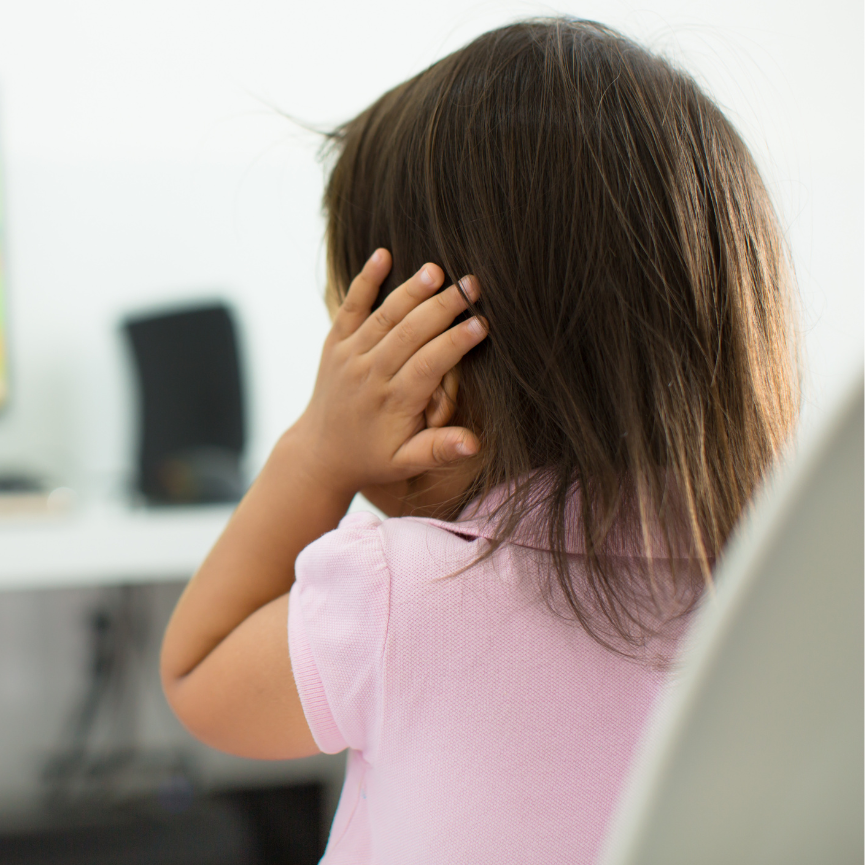
- May 15, 2024
- 100 Views
- 0 Comments
Art Of Managing Anxiety In Autistic Children
Effective Strategies for Managing Anxiety in Autistic Children
More power and patience to all of you parents with Autistic children. Rest assured that I am with you on this journey as a friend and guide. Continuing our sincere endeavors to empower you with all the practical knowledge on Autism, this article will focus on anxiety in autistic children and proven and reliable ways of managing it effectively.
As someone who is parenting a child with Autism, the last thing you would like your child to experience is unnecessary fear, worry, or uneasiness due to their anxiety issues.
It’s particularly hard on your part to see your child unnecessarily nervous, aggressive, or desperately trying to avoid sounds or sights that are otherwise common occurrences.
When such uneasiness and out-of-character behavior appear to recur regularly, these expressions and patterns may represent anxiousness or anxiety.
Early interventions to prevent anxiety
Parents with autistic children should recognize these signs early, as they require timely action. The absence of timely action may cause problems and adversely affect the child’s development. Anxiety is nothing new in human life. It is also a common part of a child’s development process, but kids with ASD (autism spectrum disorder) are sometimes seen to experience this more often compared to others.
Anxiety in Autistic Children
Anxiety is found to affect around 40% of autistic people (Source: van Steensel et al., 2011) and is more commonly seen in kids and young people (CYP) with autistic disorder (Source: White et al., 2009).
Any form of worry, fear, uneasiness, or nervousness that occurs repeatedly can point toward anxiety.
It can be mild to extreme in the way your child copes with it.
A child with autism may experience anxiety in different situations, such as thinking about leaving parents for school or when a stranger visits home.
While occasional fear is ok and normal, when you are not able to control these symptoms in the child over a prolonged period, it starts to affect their daily life, which can lead to other comorbid conditions such as OCD (obsessive-compulsive disorder), ADHD (attention deficit hyperactivity disorder), and depression.
Hence, understanding its impact on the development of children with autism, identifying anxiety symptoms, and handling it properly is very important.
And if you have any queries or require clarity on the subject, we are only a click away.
Get in touch with GodsOwnChild or reach out for what we can assure you, is well-researched information regarding the issue.
Autism and anxiety
According to some experts, Autism and anxiety might not be two separate conditions as they sometimes overlap.
Autistic kids may experience anxiety more than normal children. But with co-existing features, it gets difficult to recognize anxiety out of these two conditions at times.
Hence, identifying anxiety issues in children with ASD can’t be done in the same way as that of adults.
Least expressive children won’t be able to describe their internal conditions (e.g., fear/worry) and, in their place, show anxiety through upsetting behaviors (physical or emotional).
Others may speak out, but with extreme difficulty, as they cannot understand and present their feelings correctly.
Anxiety in autistic kids may show up differently in different situations or times.
- General anxiety about the surrounding environment or situation
- Social anxiety about gatherings and interactions
- Phobias and fears about something not harmful like alarms, vacuum cleaners, toilet flushes
- Obsessions and the consequent compulsive/repetitive behaviors
- Separation anxiety while going away from parents, such as while going to school
- Extreme agony or tantrums about a change in surroundings or routine
What elements can trigger anxiety in autistic kids?
Some experts believe that kids with ASD have problems regarding upcoming events, worsening their sense of insecurity.
A constant fear of strangers is seen as a core feature of autism in children.
Other factors involved are sensory sensitivities (hypersensitivity to crowds, noise, food, and light), poor verbal ability, and medical conditions (gastrointestinal problems, OCD, etc.) which might trigger anxiety in kids with autism at times.
Adverse effects of anxiety in Autistic children?
Anxiety, if not addressed over time, affects the overall development of autistic children.
These effects can be different from child to child, depending on various factors. For example, some children may
- Show symptoms of social withdrawal and extreme uneasiness
- Rigidly follow a fixed routine and thought process
- Show symptoms of uneasiness during sleep or have difficulty sleeping
- Experience frequent meltdowns or temper rises
- Start hurting themselves, like banging their head
How can you manage anxiety in Autistic kids?
Effective management strategies are essential to addressing the unique challenges posed by anxiety in autistic children, ensuring they can thrive in a supportive environment. As parents, we can do various things, both proactive and reactive, which can help relieve your child’s fears and worries, thus supporting them to handle their anxiety issues.
Some useful tips to consider
- Know your child and understand what disturbs and causes fear in them. Try and minimize or eliminate these occurrences as much as possible.
- If your child seems oversensitive to loud noise, it can be addressed using ear muffs.
- The use of weights and compression is believed to be highly effective for calming autistic children and helping them better absorb their surroundings.
- Use calm inputs, sensory toolkits, and sensory integration activities to let the child relax. You can check out GodsOwnChild’s latest range of sensory integration tools for autistic children by clicking here.
- Ensure your child is getting disturbed-free sleep. Weighted blankets are seen to be highly effective in reducing anxiety while sleeping.
- Use of visual schedules (pictures to alert and prepare the child for a smooth transition). Check our specially made visual schedulers for Autistic children by clicking here.
- Teach the child breathing and muscle relaxation exercises
- Help the child learn to express and regulate emotions. Emotional or expression cards are seen as useful for this. Click here to check our range of emotion cards for autistic children.
- Rehearse the child going into situations that are distressing for him slowly while always being beside them. This should be done gradually while giving time for the child to realize the harmlessness of the same.
Therapeutic interventions for managing anxiety
There are different proven treatments and interventions for autistic children to help them better cope with anxiety.
Some of them worth mentioning are cognitive-behavioral therapy, exposure therapy, psychotherapy, pharmacotherapy, educational therapy, and physical therapy.
The latest study shows encouraging benefits through social integration therapy, play therapy, and dance therapy, which are now increasingly being used by many professional therapists.
However, we must understand that special kids need a personalized assessment and multi-approach intervention plan under the supervision of a qualified therapist only.
If you can identify symptoms of anxiety early, then helping your child better manage such conditions will never be a problem. Hence, the most important part is spending as much time as possible with your autistic child; your mere presence is powerful enough therapy to help them calm.
Stay positive; others have gone through the same issues, and strategies are always there to control them.
If you at any time feel your strategies are not working or can see prolonged signs of anxiety, do seek professional help immediately. You may also check our directory of Autism Therapy Centers to find a professional near you.
For the link to the directory, click here:
Please let us know your feedback on this article and suggest topics for future articles.
You are also welcome to publish your own stories with us – Let your story be heard.
Reach out with an email to us at support@godsownchild.com



Comments - 0 comments till now